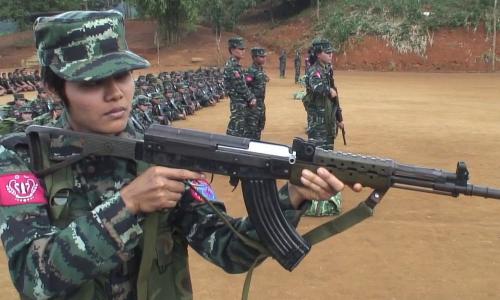Brazen kidnappings multiply in Myanmar's Rakhine state as conflict deepens
It was a brazen daytime attack by ethnic rebels fighting for greater autonomy in the jungles of western Myanmar.
After storming a boat off the coast of Rakhine state, the insurgents kidnapped a lawmaker from the ruling National League for Democracy (NLD) and nine other people, including staff of an Indian construction firm.
The abductions by Arakan Army rebels (photo) on Nov 3 were the highest-profile in a series of kidnappings they have carried out in their intensifying year-long campaign against the government.
The ethnic Rakhine insurgency, believed to include thousands of rebels, poses a serious threat to the government of Aung San Suu Kyi in an increasingly lawless region already destabilised by a military crackdown on Rohingya Muslims.
More than 730,000 Rohingyas fled the crackdown in 2017, a campaign that UN investigators said was carried out with “genocidal intent”. The state is also a centre for major Chinese investments in an oil pipeline and a port, and the government hopes to further develop the region.
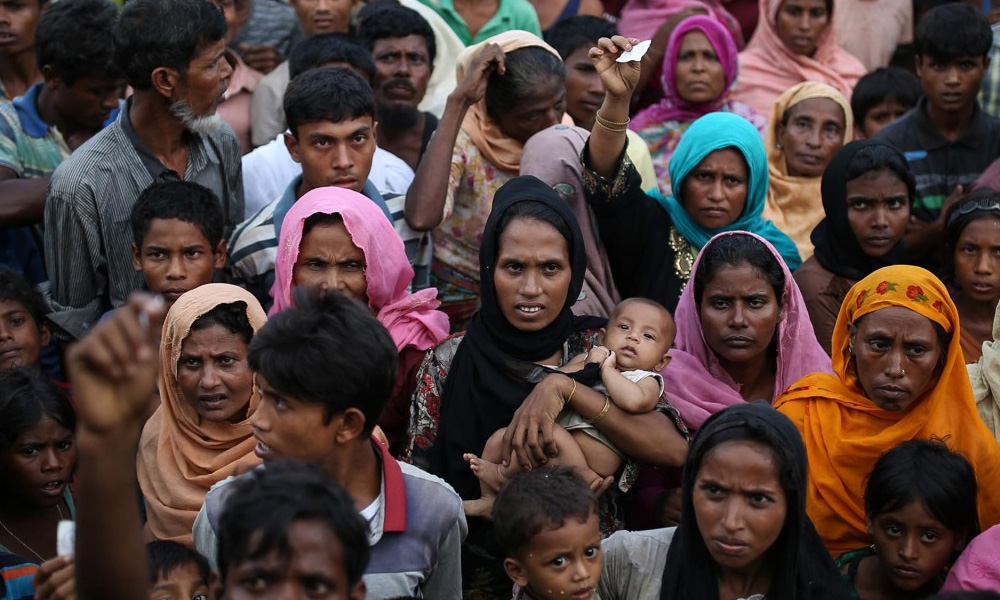
The Rakhine rebels are fighting for greater autonomy for their impoverished state, recruiting from the mostly Buddhist majority.
The central government has long had a tenuous grip in Rakhine, which borders Bangladesh and is largely separated from the rest of Myanmar by a range of jungle-clad mountains.
The ruling NLD suffered defeat in the state to a Rakhine nationalist party during the national elections of 2015.
The Arakan Army was formed in 2009 but had been relatively low-profile before the latest surge in fighting, which erupted in January when rebels attacked four police stations in Rakhine.
The government has vowed to crush the rebels, sending thousands of troops into Rakhine, and cutting off Internet connections across the region.
Grateful to be alive
The rebels have turned to kidnappings in response. In recent months, dozens of people have been seized from buses and boats, while suspected informers have been detained in villages, according to local officials, the rebels and media reports.
Contacted for comment by Reuters, the military’s spokesperson, Brigadier General Zaw Min Tun, called the kidnappings by the rebels “terrorism”, and defended the military’s response to the insurgency as justified.
In October, suspected rebels disguised as football players boarded a bus and took dozens of firefighters and civilians hostage in Mrauk-U, the historic former capital of the region.
The same month, rebels seized more than 50 people, most of them members of the security forces, from a ferry near Buthidaung township.
Myanmar soldiers then shot at and sank vessels carrying the captured men, killing dozens, according to the rebels. Reuters was unable to reach the military spokesperson to get comment on the sinking of the vessels.
The Myanmar government did not respond to requests for comment from Reuters. The government spokesperson, Zaw Htay, last month condemned attacks by the Arakan Army, calling them a violation of the country’s sovereignty.
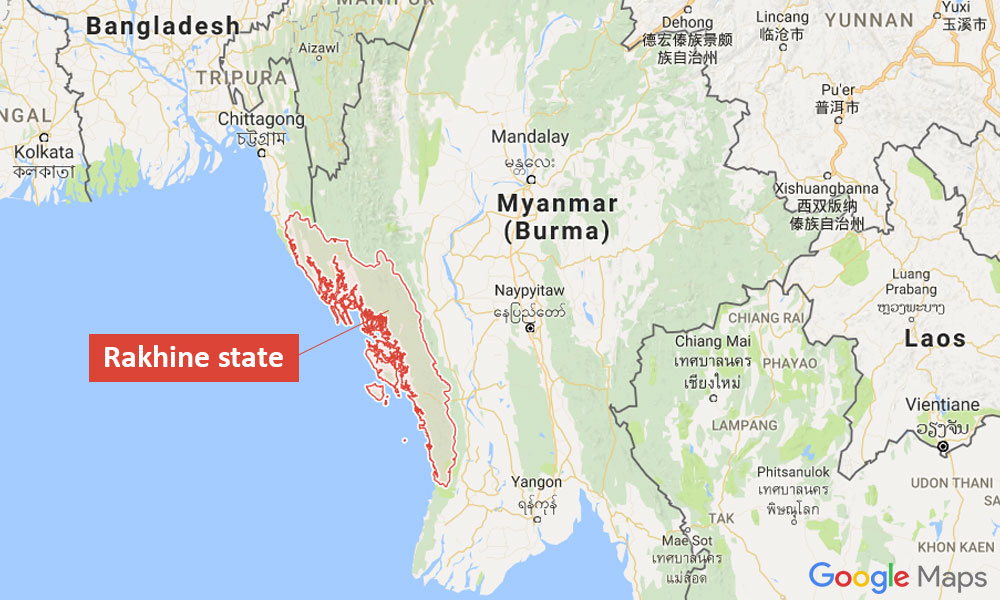
The Arakan Army spokesperson, Khine Thu Kha, acknowledged abducting civilians but said the group did not harm them.
“We must arrest them if necessary,” Khine Thu Kha told Reuters in an audio message. “It is the nature of war.”
Many of those captured have been released quickly, but others have been kept as hostages as the rebels demand the release of arrested Rakhine civilians.
After the Nov 3 attack, in which one of the Indians was killed, the rebels quickly freed most of the hostages. But they kept the NLD lawmaker, Hawi Tin, in custody.
In a statement, the rebels accused Hawi Tin of informing authorities about their activities.
One man aboard the boat that was seized in October said he had been taking his family on holiday. They were released after 10 days and a lengthy interrogation.
“I did not even hope to survive – I was thinking of God,” he said. “I feel really grateful to be alive right now.”
The man, who requested anonymity, said he was taken into the jungle and kept in a hut, guarded by two armed rebels.
The abductions have sparked an outcry from rights groups over the toll the fighting is taking on civilians. More than 40,000 people have fled their homes as fighting has escalated over the past year, according to the United Nations, and dozens have been killed.
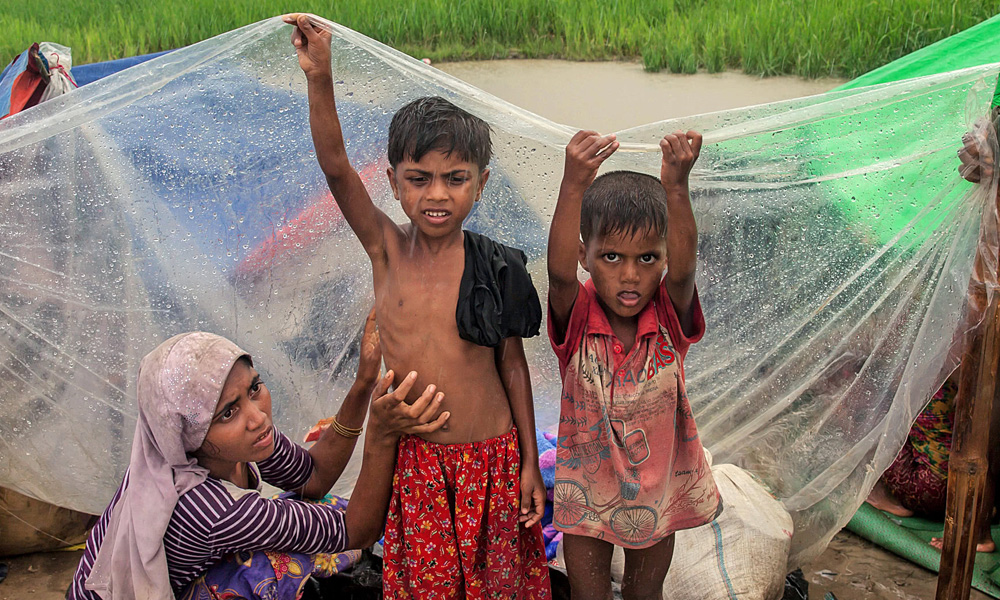
A UN investigator said in July the army may be committing “war crimes” in the region, citing reports of deaths during interrogations of people arrested over suspected links to the rebels.
The rebels enjoy strong support across Rakhine, where many people feel that the central government has neglected the region economically.
The rebels’ leader, Tun Myat Naing, has called for “confederate” status for Rakhine, which would mean autonomy from the rest of Myanmar and include authority over legislation and taxation.
Ethnic conflict
There are indications the conflict is exacerbating existing tensions between the myriad ethnic groups coexisting uneasily in Rakhine.
Rohingya Muslims, hundreds of thousands of whom remain in Rakhine, have been caught between both sides, with some reported killed by the group as suspected informers.
“If one is not with them, then he is their enemy,” said Aye Chan, a Yangon-based historian from Rakhine, referring to the rebels.
Hawi Tin, the kidnapped lawmaker, hails from the Chin ethnic minority, some of whom are Christians and have a historic rivalry with Buddhist Rakhines.
The Chin Human Rights Organisation says a total of 13 Chin people are being held by the Arakan Army. Reuters was not able to independently confirm that claim.
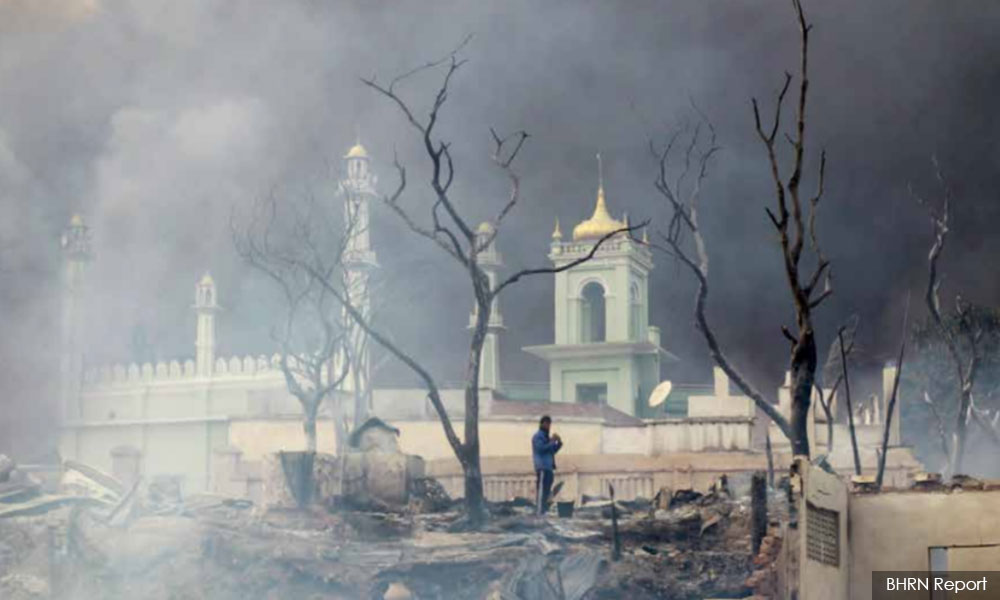
One Chin official from Paletwa, the same town as Hawi Tin, said he was detained for five days by the rebels and beaten. The official, who requested anonymity, said he had been accused of feeding information about the group’s activities to the police and military.
In Paletwa, fears are growing for Hawi Tin’s safety.
“I don’t know what to tell the kids when they ask about their father,” Hawi Tin’s wife, Khin Ei Sint, said by telephone.
“I just want the government to rescue him and help return him home,” she said.
- Reuters
RM12.50 / month
- Unlimited access to award-winning journalism
- Comment and share your opinions on all our articles
- Gift interesting stories to your friends
- Tax deductable
